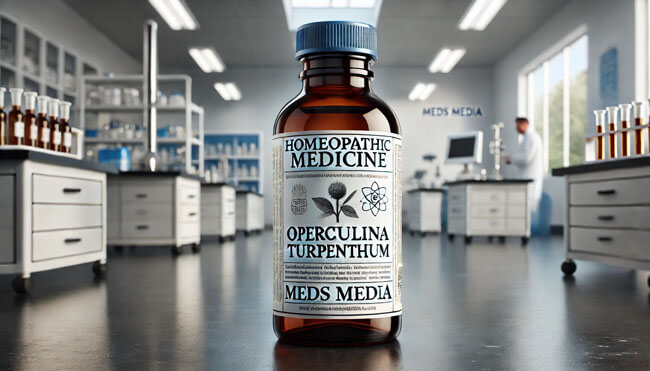TUBERCULINUM ( TUB ) Homeopathic Uses & Treatment Insights
Tuberculinum, a remedy derived from the tuberculosis bacterium, holds a special place in homeopathy. It is primarily used for individuals exhibiting symptoms related to tuberculosis and other chronic conditions, particularly those affecting the respiratory system. Tuberculinum is especially indicated in renal affections, but caution is necessary, as even high potencies can be dangerous if the skin and intestines are not functioning normally. This guide delves into the diverse benefits and applications of Tuberculinum, highlighting its efficacy in various health conditions.
Indications and Uses
Renal Affections and Chronic Cystitis
Tuberculinum has shown brilliant and permanent results in chronic cystitis, a condition characterized by persistent inflammation of the bladder. Dr. Nebel Montreux has documented its efficacy, especially in cases where other treatments have failed to provide lasting relief.
Respiratory Conditions
Tuberculinum is of undoubted value in the treatment of incipient tuberculosis. It is especially suited for individuals with a light complexion and narrow chest, who are prone to respiratory issues. These individuals often have a lax fiber, low recuperative powers, and a high susceptibility to changes in the weather. They are perpetually tired, with motion causing intense fatigue and an aversion to work. Tuberculinum helps when these symptoms are constantly changing, and well-selected remedies fail to improve the condition.
Nervous System Disorders
Tuberculinum is beneficial for treating epilepsy, neurasthenia, and nervousness in children. It is particularly effective for mentally deficient children and those with extreme wasting and exhaustion. The remedy helps alleviate symptoms of general exhaustion, trembling, and nervous weakness.
Skin and Joint Affections
Tuberculinum is valuable in managing skin conditions like chronic eczema, acute articular rheumatism, and acne in tuberculous children. It is also effective for treating enlarged tonsils and other skin afflictions that cause intense itching, particularly at night.
Mental and Emotional Symptoms
Contradictory Characteristics
One of the hallmark features of Tuberculinum is its contradictory nature. Patients may experience mania and melancholia, insomnia and sopor. They often exhibit irritability, especially upon waking, and may feel depressed and melancholy. A unique symptom is the fear of dogs and other animals, accompanied by a desire to use foul language, curse, and swear.
Head Symptoms
Tuberculinum is indicated for deep brain headaches and intense neuralgias. Patients often describe a sensation of an iron band around their head. It is useful in cases of meningitis and nocturnal hallucinations, where patients awake frightened. The remedy also addresses plica polonica (a condition where hair becomes matted and tangled) and crops of small, painful boils in the nose with green, fetid pus.
Ear Symptoms
For persistent, offensive otorrhea (ear discharge), Tuberculinum is highly effective. It helps in cases with perforation of the tympanic membrane, where the edges are ragged.
Digestive System Symptoms
Stomach and Appetite
Tuberculinum patients often have an aversion to meat and a constant sensation of hunger, despite feeling all-gone. They may crave cold milk and experience early-morning, sudden diarrhea with dark-brown, offensive stools discharged with much force.
Abdominal Conditions
Tuberculinum is indicated for conditions like tabes mesenterica, where there is wasting of the mesenteric glands. It helps manage early-morning diarrhea and other abdominal discomforts.
Female Reproductive System
Tuberculinum is beneficial for benign mammary tumors and menstrual irregularities. It is particularly effective for menses that are too early, too profuse, and long-lasting. It also helps alleviate dysmenorrhea, where pains increase with the establishment of the flow.
Respiratory System
Tuberculinum addresses various respiratory conditions, including:
- Enlarged Tonsils: It helps reduce the size of enlarged tonsils.
- Cough: The remedy is effective for hard, dry coughs during sleep and profuse bronchorrhea.
- Shortness of Breath: It alleviates the sensation of suffocation, even with plenty of fresh air, and is beneficial for broncho-pneumonia in children.
- Weight Loss and Sweating: Tuberculinum helps manage hard, hacking coughs, profuse sweating, and loss of weight.
Back and Skin Symptoms
Back Symptoms
Tuberculinum is useful for tension in the nape of the neck and down the spine. Patients may experience chilliness between the shoulders or up the back.
Skin Conditions
The remedy is effective for chronic eczema with intense itching, especially at night. It is also indicated for conditions like acne in tuberculous children, measles, and psoriasis.
Sleep and Fever Symptoms
Sleep Issues
Tuberculinum helps manage poor sleep quality, where patients wake early and feel overpowering sleepiness during the day. It also addresses vivid and distressing dreams.
Fever Symptoms
The remedy is effective for post-critical temperatures of a remittent type. It helps manage profuse sweating and general chilliness.
Modalities
Aggravations
Patients with Tuberculinum often experience worsened symptoms with motion, music, before a storm, while standing, in dampness, from drafts, early in the morning, and after sleep.
Ameliorations
Symptoms improve with open air, providing relief from various discomforts.
Complementary Remedies
Tuberculinum works well with several complementary remedies, including:
- Koch’s Lymph: Useful for acute and chronic parenchymatous nephritis, pneumonia, and broncho-pneumonia in tuberculous patients.
- Aviare (Tuberculin from Birds): Effective for influenzal bronchitis and other broncho-pulmonary diseases in children.
- Hydrastis: Helps fatten patients after Tuberculinum treatment.
- Formic Acid: Indicated for tuberculosis, chronic nephritis, and malignant tumors.
Dosage and Administration
Tuberculinum requires more frequent repetition in children’s complaints than nearly any other chronic remedy. The 30th and higher potencies are typically used in infrequent doses. When Tuberculinum fails, Syphilinum often follows advantageously, producing a reaction.
Special Considerations
The use of Tuberculinum in phthisis pulmonalis (tuberculosis of the lungs) demands attention to specific points:
- Apyretic Tubercular Phthisis: Results are marked if the eliminative organs are in good order. High potencies (1000th and above) should be used unless absolutely necessary.
- Mixed Infections: For cases with mixed infections, where the sputum contains virulent micro-organisms, other procedures are necessary. A single dose of Tuberculinum 1000-2000 is given, followed by careful monitoring of temperature and excretions.
- Diet Regulation: Patients should follow a predominantly vegetable diet with the addition of physiological salts in low potency, such as Calcarea carb 3x, 5x, and Calcarea phos 2x, 6x.
Comprehensive Guide to Homeopathy Potencies
Disclaimer:
This information is for educational purposes only and is not a substitute for professional medical advice, diagnosis, or treatment. Always consult your physician or a qualified healthcare provider regarding any medical condition. Use homeopathic remedies under the guidance of a certified practitioner.
Why our homeopathy guides are different
We break down classical homeopathic ideas, remedy personalities, and prescribing tips into clear explanations so students and patients can follow along without jargon.
This homeopathy site is for study and education only. For any health concern, always work with a qualified doctor or registered homeopathic practitioner.
Similar Posts You may also like

NITRO MURIATICUM ACIDUM HOMEOPATHIC MATERIA MEDICA | Uses, Symptoms & Benefits Guide

NITRI SPIRITUS DULCIS HOMEOPATHIC MATERIA MEDICA | Uses, Symptoms & Benefits Guide

NUPHAR LUTEUM HOMEOPATHIC MATERIA MEDICA | Uses, Symptoms & Benefits Guide

NUX MOSCHATA HOMEOPATHIC MATERIA MEDICA | Uses, Symptoms & Benefits Guide

NUX VOMICA HOMEOPATHIC MATERIA MEDICA | Uses, Symptoms & Benefits Guide

NYCTANTHES ARBOR TRISTIS HOMEOPATHIC MATERIA MEDICA | Uses, Symptoms & Benefits Guide

OCIMUM CANUM HOMEOPATHIC MATERIA MEDICA | Uses, Symptoms & Benefits Guide

OENANTHE CROCATA HOMEOPATHIC MATERIA MEDICA | Uses, Symptoms & Benefits Guide

OLEUM ANIMALE AETHEREUM: HOMEOPATHIC MATERIA MEDICA – Symptoms Guide

OLEUM JECORIS ASELLI: HOMEOPATHIC MATERIA MEDICA – Symptoms Guide

OLEUM SANTALI: HOMEOPATHIC MATERIA MEDICA – Symptoms Guide

OLEANDER: HOMEOPATHIC MATERIA MEDICA – Symptoms Guide

ONISCUS ASELLU: HOMEOPATHIC MATERIA MEDICA – Symptoms Guide

ONOSMODIUM VIRGINIANUM: HOMEOPATHIC MATERIA MEDICA – Symptoms Guide

OPIUM: HOMEOPATHIC MATERIA MEDICA – Symptoms Guide

OPERCULINA TURPENTHUM: HOMEOPATHIC MATERIA MEDICA – Symptoms Guide

OPUNTIA FICUS: HOMEOPATHIC MATERIA MEDICA – Symptoms Guide
